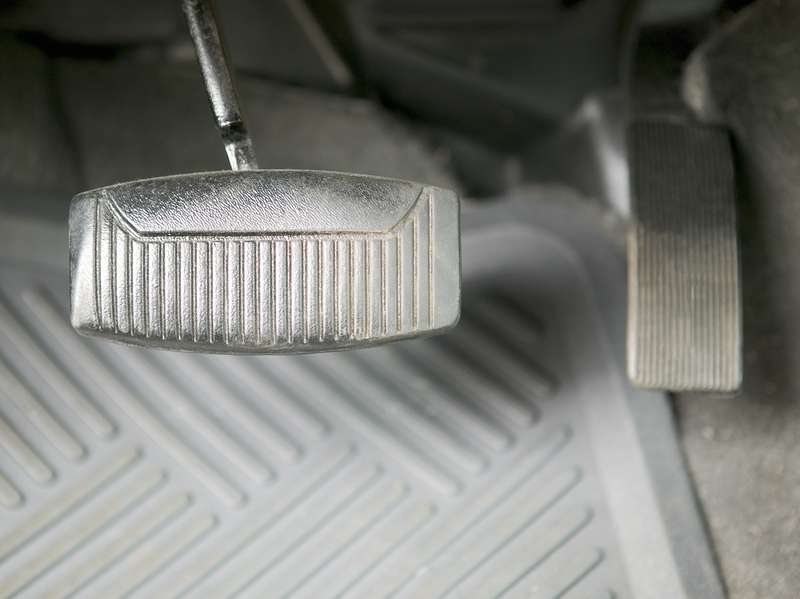Recent Articles
Popular Makes
Body Types
What Are Vegetable Oil Cars?

Ever wonder what happens to the old French-fry grease from your local burger joint? (Assuming, of course, it gets changed from time to time.) In most cases, it’s simply thrown away — unless the owner of the restaurant has worked out an arrangement with someone to pick it up and use it as fuel.
Yes, fuel.
This is happening more and more, as people have come to realize used vegetable oil is a suitable replacement for diesel fuel, if a few modifications are performed to their vehicles. In fact, Rudolf Diesel, the inventor of the eponymous powerplant, designed a version of it to run on vegetable oil. The idea was if it could run on vegetable oil, farmers could generate their own fuel to power their faming machinery.
Somewhat presciently, Diesel is quoted as having once said; "The fact that fat oils from vegetable sources can be used may seem insignificant today, but such oils may perhaps become in course of time of the same importance as some natural mineral oils and the tar products are now."
Turns out, dude was right — sort of.
Vegetable Oil Cars: SVO is So NOT Biodiesel
While it’s tempting to think of vegetable oil fuel as a variant of bio-diesel, the two are quite different. While both use vegetable oil as their base, bio-diesel blends petroleum-based diesel fuel with a small amount of vegetable oil. Straight Vegetable Oil (SVO), as it’s name implies, is simply filtered vegetable oil that has had the water removed from it before being introduced to the fuel tank of a vehicle.
Because of this, while bio-diesel engines require very little in the way of modification of the engine, a vegetable oil car conversion does require engine modifications. It also requires a heated fuel tank so the vegetable oil remains viscous enough to flow through the fuel lines. On the other hand, it is also cheaper to produce, so the price for it is considerably lower than for biodiesel.

Vegetable Oil Cars: Advantages
When an internal combustion engine burns vegetable oil, the carbon released into the atmosphere is carbon that would’ve gone there anyway from the natural decay of the plant material from which the fuel was derived. For this reason, SVO is considered carbon neutral.
Further, it can be produced from locally grown vegetables, and as such its usage is considered to reduce dependence on imported petroleum. Along these same lines, a vegetable oil spill is entirely biodegradable. While you really don’t want to spill billions of gallons of it into the ocean, if you did, it’d be considerably less toxic than a similarly sized spill of crude oil. The emissions of airborne particulates are significantly reduced over burning petroleum-based fuel too. In other words, vegetable oil runs vehicles cleaner, with less of a negative impact on the environment.
Additionally, when a vehicle runs on used vegetable oil, it’s simultaneously disposing of the fluid while generating transportation in exchange. It’s the perfect recycling solution; even as it becomes a waste product from its primary usage, it becomes the raw material for yet another usage. Further, it becomes a source of additional revenue for the restaurant. Something they previously would have thrown away becomes another product they can sell.

Vegetable Oil Cars: Disadvantages
The biggest disadvantage facing cars that run on vegetable oil is the fact that it is semi-illegal to do so. The Environmental Protection Agency hasn’t approved the usage of vegetable oil as a fuel. There’s no law against doing it per se, put you could be fined $32,500 per day for every day you’ve used it and be faced with a fine of $2,750 for converting a perfectly innocent petroleum-based diesel car into a diesel car compatible with SVO.
Another problem is availability.
There are only so many restaurants out there with a need to dispose of used vegetable oil. Right now, since running a car on SVO is a novelty, there’s more than enough to support the few drivers out there willing to run the risk of being popped by the EPA, as well as go through the processes required to convert the oil into a usable fuel. It is estimated just under three billion gallons of used vegetable oil are generated on an annual basis. That comes out to be roughly one percent of the amount of fuel consumed by American motorists each year.
There are some considerations for the actual usage for the fuel as well. Chief among them is the fact running on vegetable oil still requires the use of either diesel fuel, or bio-diesel fuel to get the vehicle started and up to operating temperature before the vegetable oil can be introduced to the combustion system. At lower temperatures the vegetable oil congeals (look at the bottom of your grandmother’s old Crisco can). The heated fuel tank helps, but it must be brought to temperature before the SVO will flow freely through the fuel lines. Similarly, vegetable oil must be purged from the lines before the vehicle is shut off so it doesn’t clog them. This is accomplished by again running on straight diesel, or biodiesel for a bit before shutting the engine down.
Another consideration, you’ll have to modify your car to accept SVO. As we mentioned before, you’ll need a heated fuel tank right off the bat. There are other vegetable oil car conversion mods that need to effected as well. A cottage industry has “sprouted” to do the work, usually for about $2000 or so.

Vegetable Oil Cars: Conclusion
If you already drive a diesel-powered car and are looking for a less expensive, cleaner burning, more fragrant alternative to conventional diesel fuel or bio-diesel fuel, a vegetable oil car conversion is a route taken by more than a few drivers. While we’ll stop short of recommending it because of the EPA regulations, special considerations aside, it does appear to be better for the environment than petroleum-based diesel fuel.
